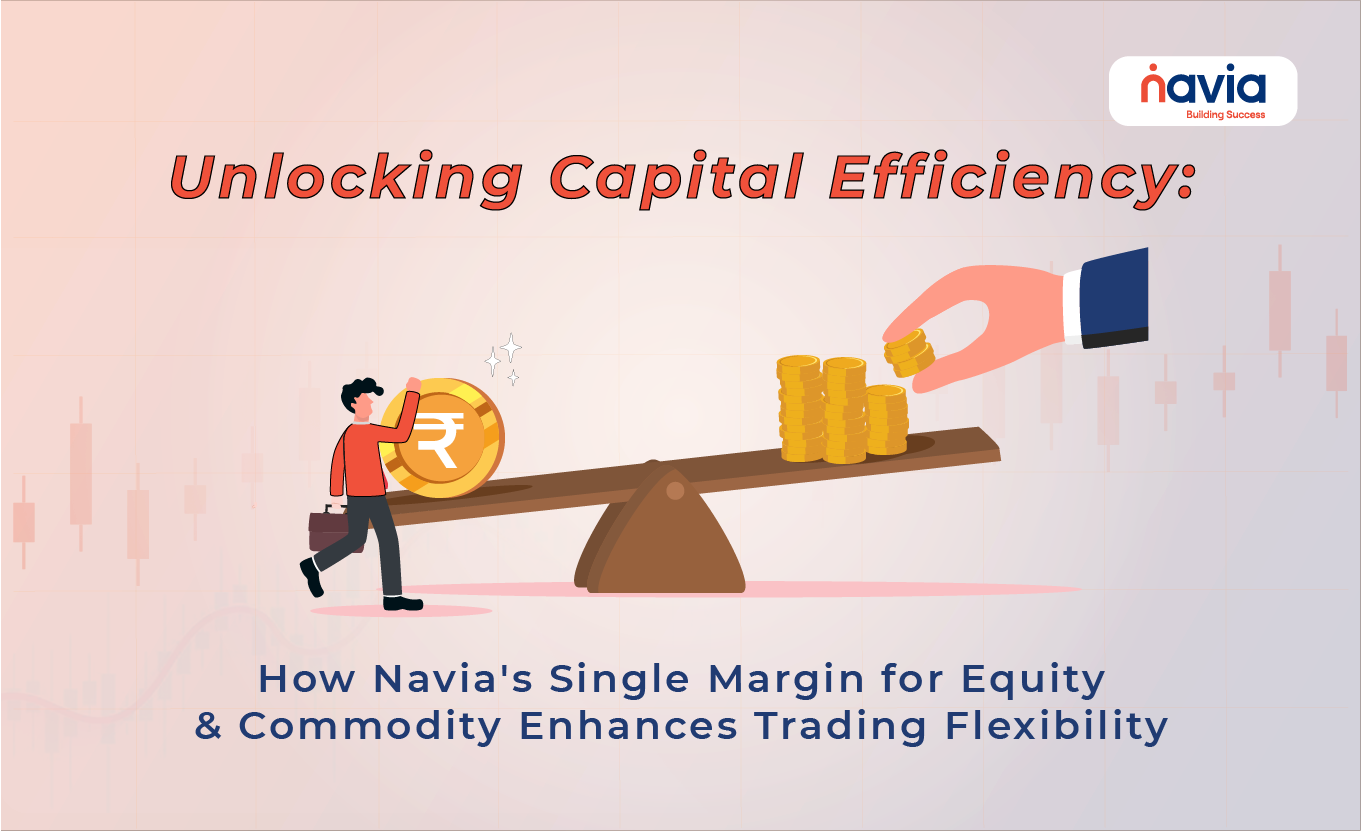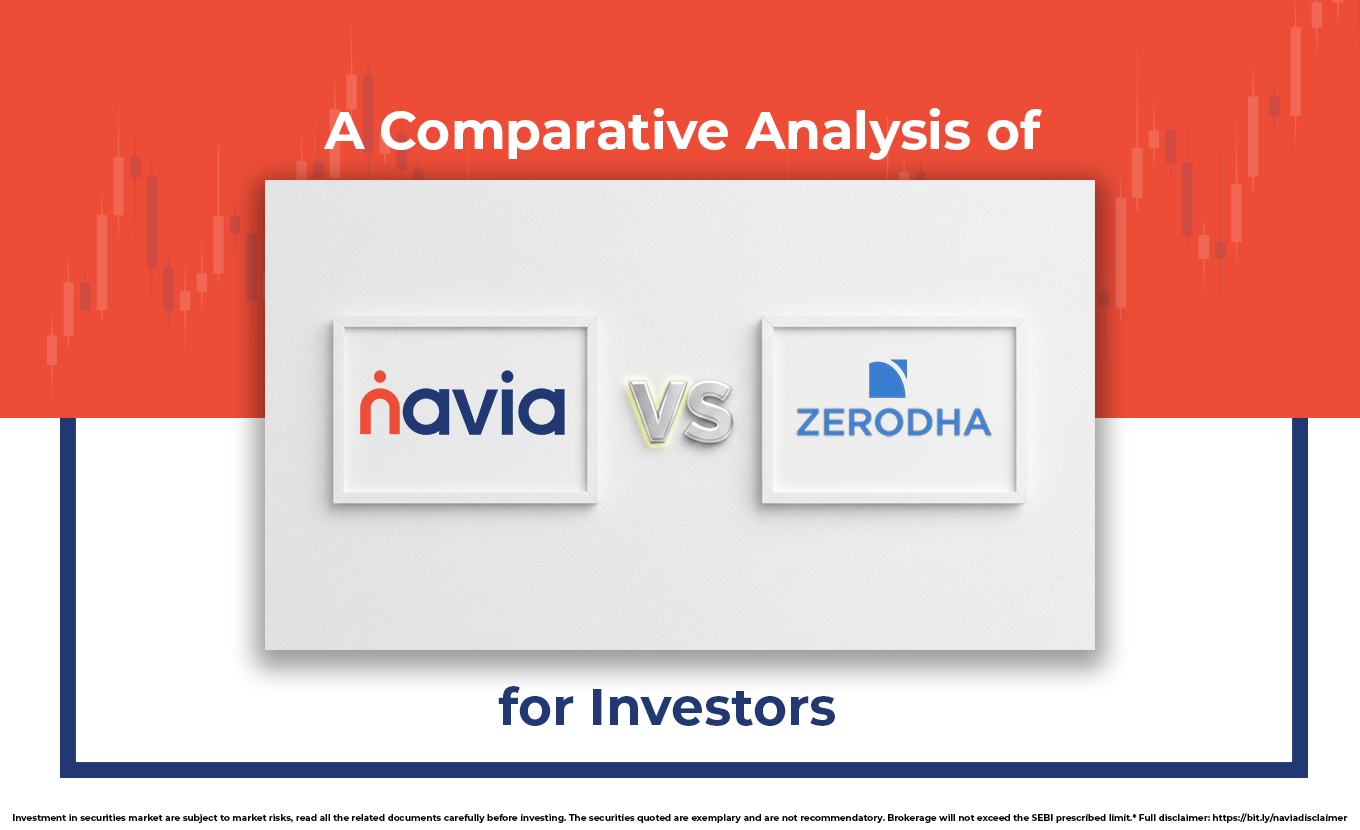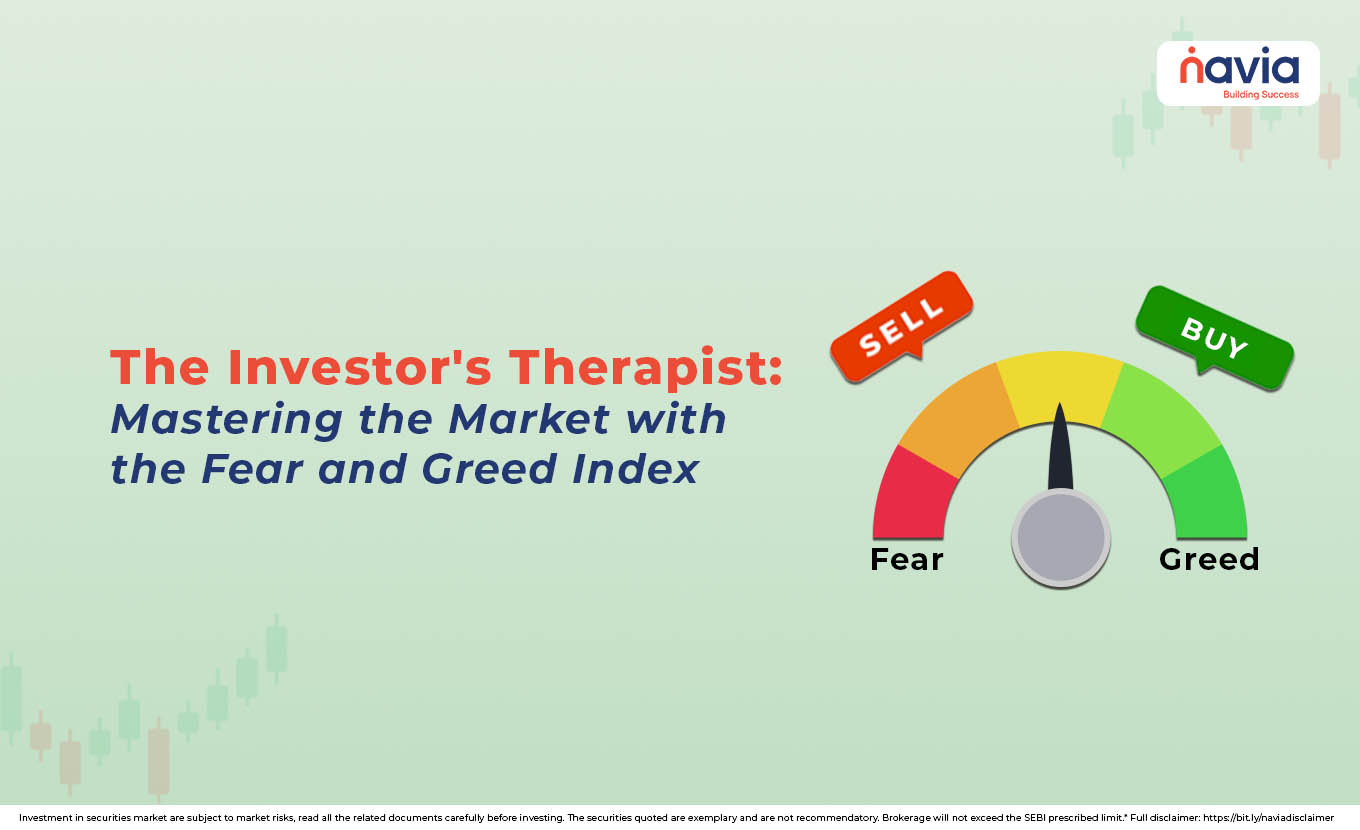Unlocking Capital Efficiency: How Navia’s Unified Margin Boosts Trading Flexibility

In the world of trading, capital efficiency is a critical aspect that determines how well a trader can utilize their funds to maximize profits. Many trading platforms, including top brokers like Zerodha, Upstox, and Groww, require clients to maintain separate margins for equity and commodity trades. This division can limit flexibility and require additional effort from traders to allocate and transfer funds between these segments.
Navia, however, offers a game-changing feature: single margin for both equity and commodity segments. This unique facility allows traders to use the same margin to seamlessly place orders in equity during the day and commodity trades in the evening, improving their capital efficiency without the need for constant fund transfers.
Why Single Margin is a Game-Changer for Traders
Here’s a detailed explanation of how single margin for equity and commodity trading works, and how it provides significant benefits to traders:
No Need for Separate Margins:
With platforms like Zerodha, Upstox, and Groww, traders must keep separate funds for equity and commodity trades. This creates a situation where capital is divided into different accounts, restricting flexibility and requiring extra effort to manage.
Navia’s single margin system allows traders to use the same margin across both segments, removing the need for separate margins and allowing seamless movement between equity and commodity trading.
Better Capital Utilization:
When you trade on platforms that require separate margins, your capital is split, which can lead to under-utilization of funds. Traders often have idle capital sitting in their commodity margin account while they are trading equities, and vice versa.
Navia’s single margin allows you to utilize 100% of your capital efficiently by placing equity trades during market hours (9 a.m. to 3:30 p.m.) and commodity trades later in the day (up to 11:30 p.m.), using the same funds. This helps traders to be more productive and ensures no capital remains idle.
Streamlined Trading:
Instead of manually transferring funds between accounts or dealing with the complications of managing two different margins, Navia traders benefit from a simplified process where all trades, whether in equity or commodities, can be placed using the same margin.
This ensures a smoother trading experience and reduces the time spent managing funds, allowing traders to focus on executing profitable trades.
Numerical Example: Margin Utilization with Navia
Let’s assume a trader has ₹1,00,000 available in their trading account and wants to participate in both equity and commodity trades.
Scenario 1: Trading with Navia (Single Margin for Equity and Commodity)
| Segment | Trade Type | Margin Utilized (₹) | Available Margin (₹) |
| Equity | Day Trade (9 a.m. – 3:30 p.m.) | ₹40,000 | ₹60,000 |
| Commodity | Evening Trade (Up to 11:30 p.m.) | ₹40,000 | ₹20,000 |
In this scenario, after using ₹40,000 for equity trading during the day, the trader can still utilize ₹60,000 for commodity trading in the evening using the same margin. Even after placing another commodity trade, ₹20,000 remains available, ensuring optimal capital utilization.
Scenario 2: Trading with Brokers Requiring Separate Margins (Zerodha, Upstox, Groww)
| Segment | Trade Type | Margin Utilized (₹) | Available Margin (₹) |
| Equity | Day Trade (9 a.m. – 3:30 p.m.) | ₹40,000 | ₹60,000 (Equity Margin Only) |
| Commodity | Evening Trade (Up to 11:30 p.m.) | ₹40,000 (Separate Margin Required) | ₹60,000 remains locked in equity account |
In this case, the trader would need to keep separate margins for equity and commodities. The ₹60,000 in equity margin would remain unused, and the trader must have additional funds in their commodity account. This leads to under-utilization of capital and creates inefficiencies.
Tabular Summary of Benefits: Single Margin vs Separate Margins
| Aspect | Navia (Single Margin) | Other Brokers (Separate Margins) |
| Margin Requirement | Single margin for both equity and commodities | Separate margins for equity and commodities |
| Capital Utilization | Full margin can be used across both segments | Capital remains locked in individual segments |
| Fund Transfer Hassles | No fund transfers needed | Frequent fund transfers required |
| Idle Capital | No idle capital | Idle capital in equity/commodity segment |
| Trading Efficiency | High efficiency and flexibility | Limited flexibility and capital efficiency |
| Segment Trading Timings | Seamlessly trade from 9 a.m. to 11:30 p.m. with one margin | Restricted by individual segment margins |
Key Trading Hours for Equity and Commodity Segments
One of the key benefits of Navia’s single margin system is the extended trading flexibility it provides due to the differing market hours between equity and commodities:
Equity Market Hours: 9 a.m. to 3:30 p.m.
Commodity Market Hours: 9 a.m. to 11:30 p.m.
With Navia’s single margin, a trader can take advantage of both market sessions seamlessly. For example, you can trade equity during the day and then switch to commodity trading in the evening without needing to transfer funds or manage multiple margin accounts.
Navia’s Single Margin System Boosts Capital Efficiency
The single margin system offered by Navia is a game-changing feature that allows traders to maximize their capital and trade more efficiently across both equity and commodity segments. By eliminating the need for separate margins, Navia provides greater flexibility, simplifies fund management, and enhances the overall trading experience.

This benefit stands in sharp contrast to platforms like Zerodha, Upstox, and Groww, where traders are required to maintain separate margins, leading to capital inefficiencies and potential missed opportunities.
For traders looking to maximize the utilization of their capital and seamlessly trade across market segments, Navia’s single margin feature offers a significant advantage, making it a preferred platform for smart and efficient trading.
DISCLAIMER: Investments in the securities market are subject to market risks, read all the related documents carefully before investing. The securities quoted are exemplary and are not recommendatory. Brokerage will not exceed the SEBI prescribed limit.
We’d Love to Hear from you





